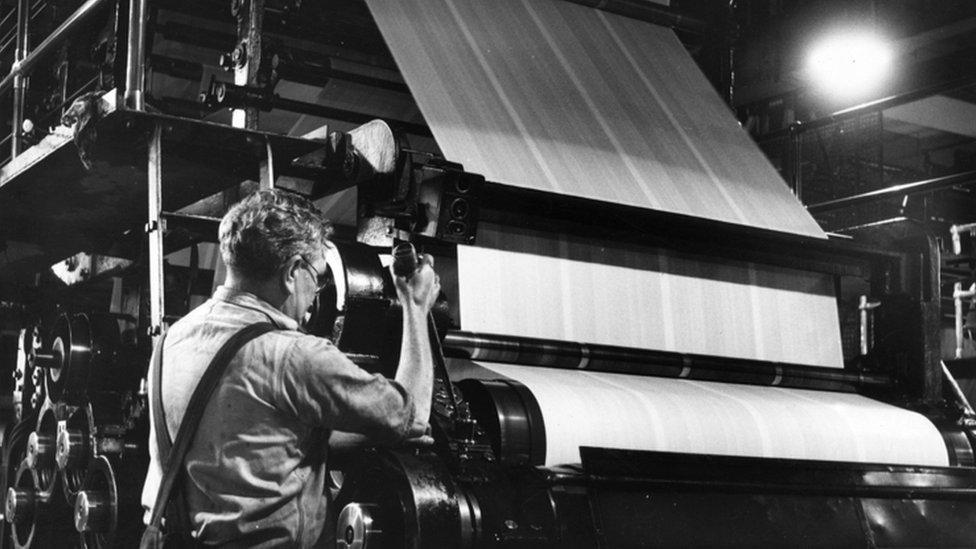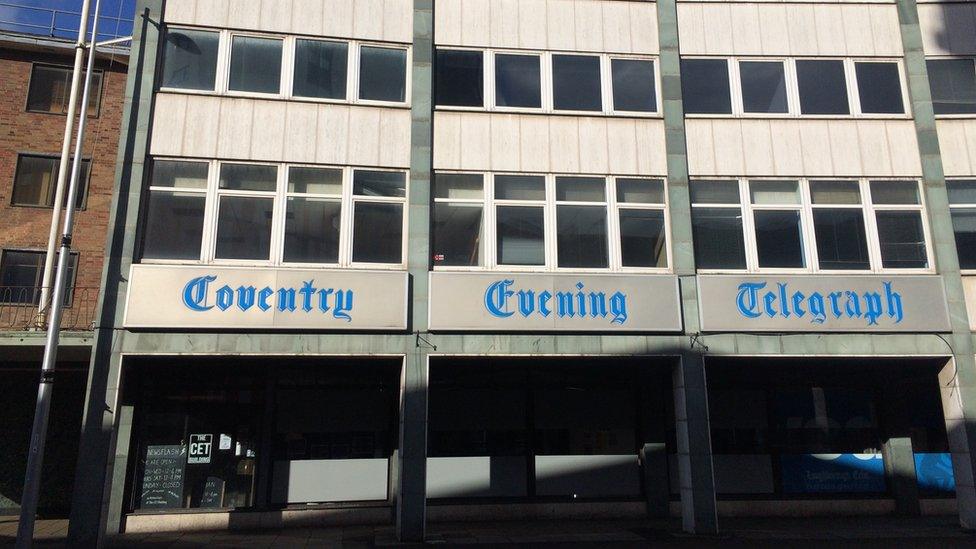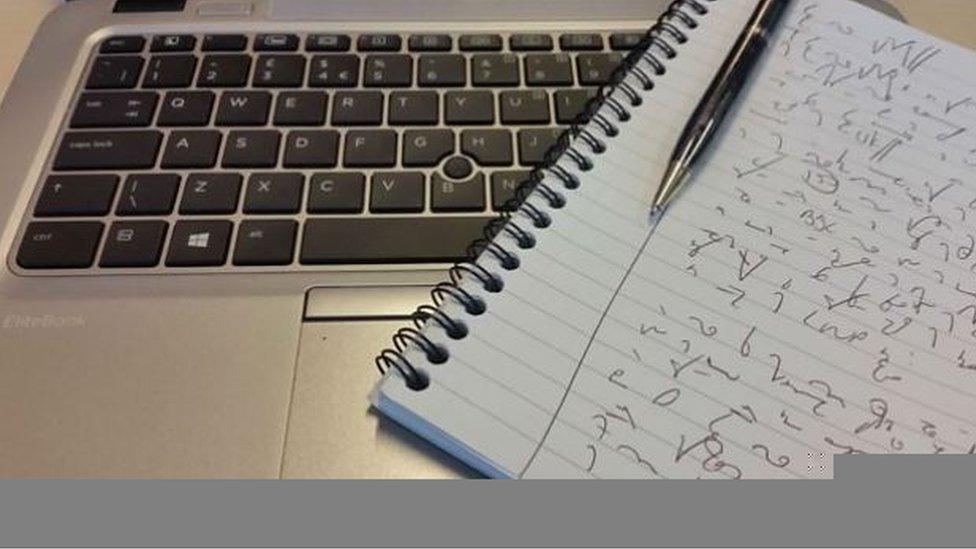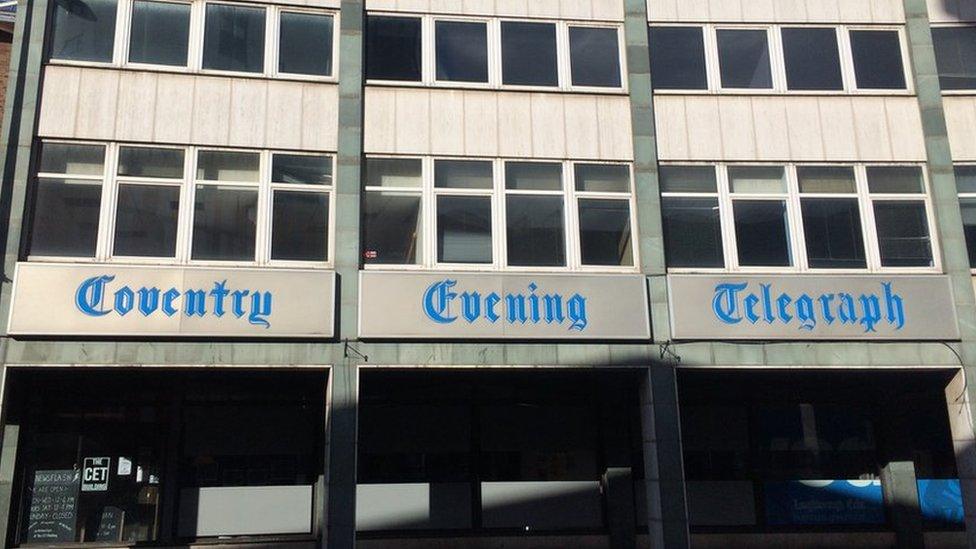Why Midlands local journalism matters
- Published

More and more people are getting their news from social media
"Read all about it!"
The problem for newspapers in general, and local newspapers in particular, is that fewer and fewer readers are responding in the old fashioned way to that traditional clarion call.
Nationally, a quarter of all local newspapers have closed over the past ten years. Not surprisingly, the number of journalists is down by 6,000.
More and more readers, especially younger ones, have been turning instead to online sources of news, especially social media.

How can the audience sort out the fake news from the reality?
There have never been more ways to access information. The number of hyper-local blogs has proliferated exponentially. Much of this has added to, or revived, interest in news and in politics. So let's not overlook the positives in all this.
But how are readers to discriminate between those outlets which carry reliable, trustworthy information and those which merely peddle "fake news", or act as echo chambers for those who just want to have their opinions, prejudices or stereotypes reinforced rather than challenged?
I winced when I first heard that mantra of the digital age "We're all journalists now".
What did this mean, I wondered, for those of us who have served our apprenticeships and been schooled in the law as is affects our work and trained to strike the balance between the right to know and the right to privacy? Boring old stuff like that.
If there are no rules, no gatekeepers, monitoring the flow of information, unsubstantiated gossip can rapidly acquire an authority and a level of influence it does not deserve, while the stock of genuine public information is steadily undermined.

A worker oils the printing press at the now defunct News of the World
Most worryingly of all for me is the possibility that a decline in the number of suitably-qualified journalists covering those planning authority meetings on wet Wednesday nights in November might lead to a withering on the vine of local accountability. If there are no reporters to cover events like these how can voters hold their representatives to account?
What price "democracy"?
"Journalism is unique because its decline wouldn't just have financial implications for the companies involved, but would have serious democratic costs too. People in areas with no local daily paper are less engaged with local elections, with less trust in local institutions."

The former Coventry Evening Telegraph building was boarded up in 2012 when the paper moved to smaller, more modern offices
So writes the Culture Secretary, Kenilworth and Southam's Conservative MP MP Jeremy Wright in, appropriately enough, the Birmingham Post following the publication last month of the Cairncross Report on the future of the press in the UK.
The review by former journalist Dame Frances Cairncross was set up by the government to examine how high-quality public interest journalism can survive in the digital age.
It was Cairncross's proposals to regulate the likes of Facebook and Google that grabbed the national headlines. But outside London, attention is focused on her call for a doubling of the journalists' posts to be established though the Local Democracy Reporting Service.

A shorthand notebook - familiar to all reporters who spent their Wednesday evenings in council meetings
The £8m scheme, funded by the BBC, currently embeds 150 journalists in regional newspapers around the UK. They share their copy between their host papers and the BBC, enabling communities to continue receiving reliable local news.
Making news, breaking news
So much for the theory. But how is the Local Democracy project working in practice?
Our Culture Correspondent, Satnam Rana has been experiencing it at first hand, not just here in the BBC but in the offices of one of England's biggest regional titles, the Birmingham Mail. It still prints every day and remains an influential player in the region's media community, but that's only after setting-up its own on-line Birmingham Live rolling news service, maintaining a foothold in each camp.
You can see Satnam's report in this weekend's Sunday Politics Midlands, when she will also be talking to the editor of the Mail, Marc Reeves and to the reporters themselves. I'll be presenting Sunday Politics Midlands as usual at 11.00 on Sunday morning (10 March 2019) on BBC One in the West Midlands and throughout England on BBC One HD.
- Published12 November 2018

- Published20 February 2018
